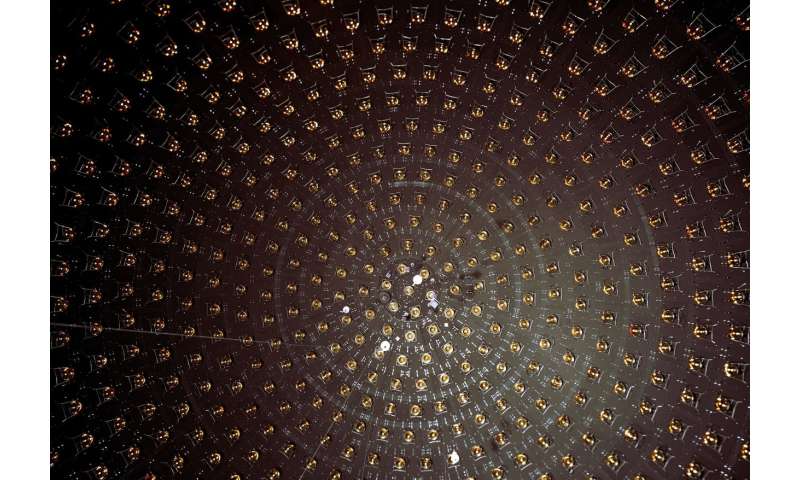Best of Last Week – New measurement at Fermilab, new way to find blackholes and PTSD linked to stress in childhood

It was another good week for physics as a team at the University of Glasgow suggested that machine learning could help in the search for gravitational waves—they have built a preliminary system geared toward separating noise from wave signals that they believe will speed up the process of finding such signals. Also, a neutrino experiment at Fermilab delivered an unprecedented measurement—that of the energy of a particle breaking up an atom. And a team of researchers from the University of California and Lawrence Berkeley National Laboratory found that a precise measurement of the fine-structure constant cast doubt on dark photon theories.
In space news, an international team of researchers found that tiny distortions in the universe's oldest light revealed a clearer picture of the strands in the cosmic web—decoding of the distortions, they believe, will help with creating a map of filaments. And Eric Thrane and Rory Smith, from the ARC Centre of Excellence for Gravitational Wave Discovery and Monash University, suggested that analyzing the background hum of space could reveal hidden black holes and perhaps lead to a better way of searching for the gravitational-wave background.
In other news, a team at the University of Bath announced that they had developed an adhesive patch to measure glucose levels through skin without a finger-prick blood test—it draws glucose from fluid between cells across hair follicles. Also, physicists Jose Luis Rosales and Vicente Martin proposed a quantum simulator that would offer a faster route for prime factorization. And a team with members from Northwestern Medicine and the University of Surrey in the United Kingdom made worldwide headlines when their research showed that night owls have a higher risk of dying sooner. Also, a team at the University of Washington proposed a peptide-based biogenic dental product that may cure cavities—it would use proteins to rebuild tooth enamel and treat dental cavities.
And finally, if have the feeling that you might overreact to everyday stress-inducing events, you might want to check out a study done by a team with members from Massachusetts General Hospital and Khyber Medical University in Pakistan—they conducted a study that showed how chronic early-life stress can raise PTSD vulnerability later in life.
© 2018 ScienceX